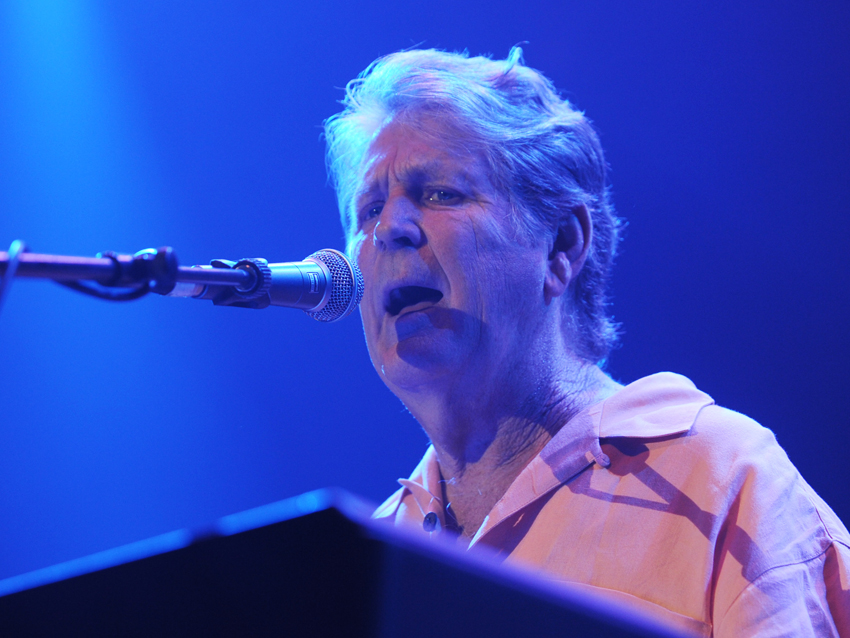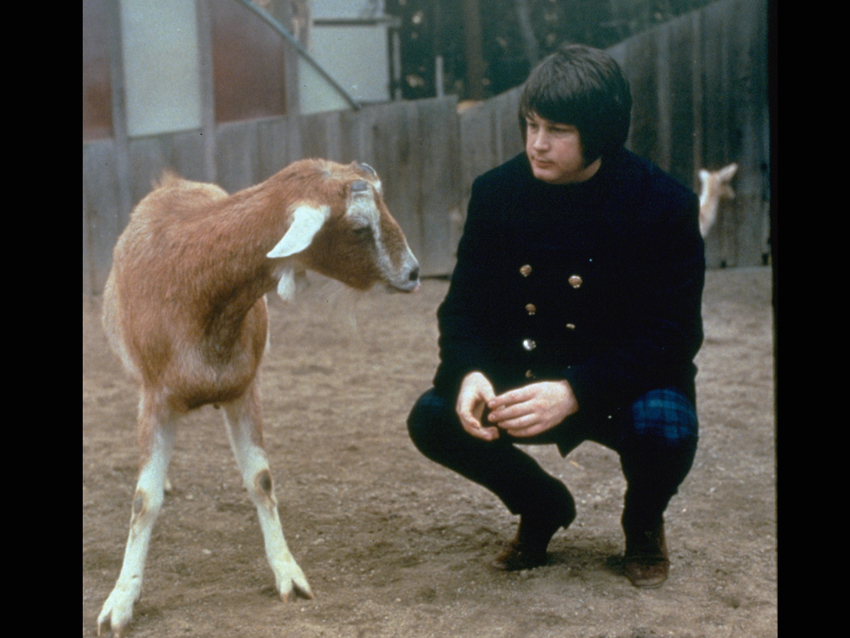Interview: Brian Wilson on Beach Boys hits, The Beatles, bass playing and more

Want all the hottest music and gear news, reviews, deals, features and more, direct to your inbox? Sign up here.
You are now subscribed
Your newsletter sign-up was successful
Having survived the '60s, LSD, obesity, mental illness, lawsuits from band members, a controversial therapist and the tragic, early deaths of his brothers, Dennis and Carl, Brian Wilson doesn't have to do much to impress - simply being here in 2012 is enough.
And yet, the man who wrote or co-wrote more than two dozen Top 40 hits - everything from the light and frothy Surfin' Safari to the astonishing, spiritually psychedelic Good Vibrations - along with crafting wondrous, hallowed pieces of long-form poetry such as Pet Sounds, is knocking audiences out by doing what many of them had long thought inconceivable: touring with The Beach Boys behind a brand-new album.
To celebrate the band's 50th anniversary, Wilson has reunited with fellow founding-members Mike Love and Al Jardine, as well as longtime member Bruce Johnston and guitarist David Marks (whose on-again, off-again tenure with the group dates back to 1962) for a world tour that also coincides with the release of That's Why God Made The Radio, a disc that smartly updates The Beach Boys' gorgeous, sunkissed sound.
Several weeks into the tour (one which is set to wrap in late August in Hong Kong), Wilson sat down with MusicRadar for an interview. A painfully shy, sometimes uncomfortable individual, even after all these years as a public figure, he nonetheless held forth on a variety of topics, such as the new album, past hits, bass playing, working with The Wrecking Crew and whether he viewed The Beatles as friends or foes.
What was it like being back with the guys in Ocean Way, which, of course, used to be United Recorders, the studio where you made so many smashes?
"It was quite an event for me. I hadn't worked with the guys in 25 or 30 years. It was pretty good for me. It brought back a lot of memories. It brought back good memories and bad memories, but I didn't let the bad memories bother me."
That's Why God Made The Radio has a bit of the sound of the early Beach Boys singles, but as it progresses the songs take on the feel of the later, artsy Beach Boys work.
Want all the hottest music and gear news, reviews, deals, features and more, direct to your inbox? Sign up here.
"Yeah! That's exactly right. That's exactly what I wanted to do. That's exactly how I did it."
Can you describe your process for writing the new songs?
"The songs came the way they always do for me: I get the melody and then the words. I worked with Joe Thomas, who is a great lyric writer and a good songwriter, too. We collaborated real well."
Did you have thoughts about making this album a little more mature? After all, it is a reunion and a lot has happened in the intervening years.
"I was just trying to make something that had a really great feel, you know?"

Wilson and a four-legged friend during the cover shoot for Pet Sounds, 1967. © Bureau L.A. Collection/Sygma/Corbis
Let's go back a little bit. What drew you to the bass? It seems like you could have picked any instrument to play in the band.
"My brother Carl was a great bass player. But he was on guitar, so I ended up on bass because of him. But I can only play a little bass."
During a period in the '60s, you worked with The Wrecking Crew. How did you end up with Carol Kaye and that fabulous group of players?
"My contractor, Steve Douglas, told me the guys to get. They're all excellent musicians. Hal Blaine, my drummer, was really good. A lot of the time I'd pick up on what he was playing in between takes and it would give me the inspiration for the next song."
The Beach Boys were doing great in the early '60s, and then along came The Beatles. Did their success cause you to be worried?
"Well, I was jealous!" [laughs]
Was there any kind of rivalry? You and Paul McCartney both played bass and wrote songs…
"No, no, it wasn't really a rivalry. It was really just a mutual inspiration thing. I didn't meet Paul till 1967."
Did you get to hear each others' records before anyone else?
"Oh yeah. Yeah. I was blown away by Sgt. Pepper. I was totally blown out. I was blown away."
But that must have been inspirational, too.
"Right! Absolutely."
Did The Beatles help inspire you to create songs like Good Vibrations?
"Boy, I can't answer that question. It was so long ago… I just don't remember."
Your use of a theremin on Good Vibrations was something of a first for pop music. Where did that come from?
"My brother Carl suggested that I use a theremin. I had no idea that there was actually a theremin player in the Musicians' Union. But we called him up and used him on Good Vibrations."
With Good Vibrations, you were pushing the boundaries of the two-and-a-half minute pop song. Did you feel like you had to limit your subject matter or your productions?
"No. By Good Vibrations, we just kept going ahead with it. We got screwed up on some of it, but we just kept working on it and patched it up, and we finally got the record that I wanted made."
How about Surfer Girl? Was it a pop song, or something deeper and more spiritual?
"I actually was intending it to be a spiritual song. Absolutely. We were trying to create real harmony - not just in our voices, but a real harmony of sound."
On the recent Smile Sessions or various studio bootlegs, you always sounded so sure of yourself. Did you have a clear idea in your mind of what you wanted before you walked into the control room?
"Well, I tend to hear music in my head. But when I hear it over the loudspeakers, the studio speakers, then I can use that, use those sounds, to develop the arrangement I already know I want. The more I hear it, the more I can create."
Working with The Wrecking Crew must have been really key to developing your ideas.
"Right. Exactly!"
In a recent magazine article you said, "Dennis could write songs like me, but he took it a step further, too." Did you rate Dennis highly as a songwriter?
"My bother Dennis? Oh, yeah! A song like Forever? Or [his album] Pacific Ocean Blue? Those are really great pieces of music."
About eight years ago, you played your first Smile shows in England. Several months later, you performed the same music at Carnegie Hall, and you seemed more comfortable playing those songs.
"Yeah, I had to go slow at first. But I had to keep rehearsing. I had to get my voice in shape. So that helped, too."